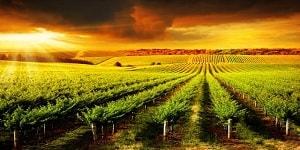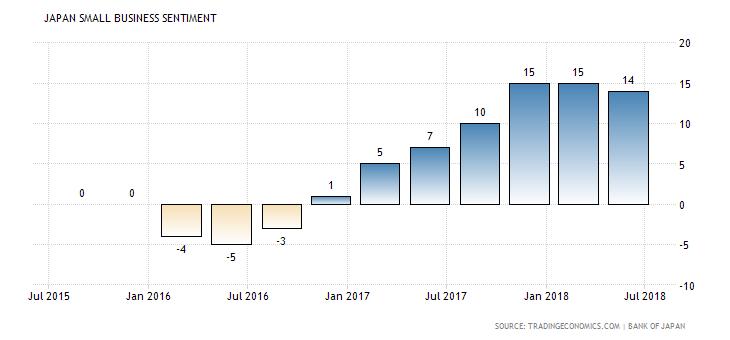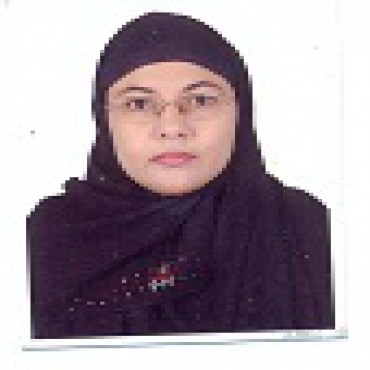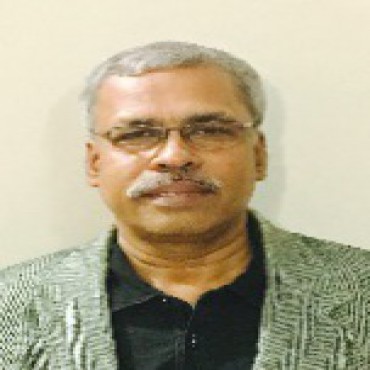
Agriculture 2018

Theme: Current Trends in Agriculture & Horticulture
It is a Privilege to us to be the host of the International Conference on Agriculture & Horticulture Scheduled during December 05-06, 2018 at Osaka, Japan. The point of Agriculture 2018 is to unite Scientists, Researchers, Teachers, Business delegates, students and research associates to tell about their experience and knowledge about the research they are working on.
The main theme of the Conference is "Current Trends on Agriculture". Agriculture conference incorporates Plenary lectures, keynote lectures by famous personalities from around the world in addition to poster presentation, young researcher sessions, symposiums, workshops, Exhibitions, skilled understudy groups from colleges and research labs giving an ideal space to share the latest advancements in the Agriculture research. Agriculture is known to be one of the most significant economic activities. It involves the production of plants, livestock, fiber, fuel and more by utilizing natural resources such as water and land. The term agriculture is broader than it is commonly anticipated to be. It includes forestry, fishery, livestock and most importantly crop production. Famous speakers from all around the globe will be joined to present the most progressive analysts and innovations in Agriculture and other related fields. Horticulture Conference likewise empowers an opportunity to direct a workshop, symposium and presentation to rise new conceivable outcomes in the Agricultural fields and other related parts of agribusiness. This meeting will give the patrons to the viable show, item advancement and influence an association with famous people and different clients to get new business to line for future promoting.
Agriculture 2018 highlights are as follows:
- Agricultural Waste Management
- Polymer in Agriculture
- Post-Harvest Technology
- Horticulture Therapy
- Pesticides and Fertilizers
- Soil Fertility
- Crop protection & Entomology
- Agricultural Economics
- Soil & Water Management
- Agricultural Biotechnology
- Rice Research
- Food & Nutrients
Session 1: Agricultural Waste Management
Agriculture is the largest contributor of any resource sector, to the economy of Prince Edward Island. It is also a large generator of waste materials. If wastes are not properly handled they can pollute surface and groundwater and contribute to air pollution. Agricultural wastes can be Livestock, Poultry, Farm waste etc., Agricultural Waste management can decrease the pollution produced from agricultural waste. Soil properties are important considerations in areas where soils are used as sites for the treatment and disposal of organic waste and wastewater. Selection of soils with properties that favour waste administration can help to prevent environmental damage. The separate sessions Agriculture and Horticulture Conference deals with major fields like Land Applications, pesticides and fertilizer.
Agricultural Waste Management Meeting, Agricultural Waste Management Conference, Agricultural Waste Management symposium, Agricultural Waste Management Workshop, Agricultural Waste Management Event, Agricultural Waste Management Congress.
Session 2: Polymer in Agriculture
Agriculture Conference focuses on Polymer in Agriculture. Super Absorbent Polymers (SAP) are prepared from acrylic acid and a cross-linker by solution or suspension polymerization. SAP can absorb water up to several hundred times of its own weight and turn into natural gel from within seconds. SAP does not contain any toxic compounds which affects the soil fertility. SAP Release the fertilizer efficiency slowly. SAP can be applied together with fertilizer, pesticide, micro-element, etc. Polymer in agriculture can produce good yield with minimal supplement of water, nutrients. The Agriculture and Horticulture Conference handle with some fields like soil moisture, soil erosion and water management.
Polymer in Agriculture Meeting, Polymer in Agriculture Conference, Polymer in Agriculture symposium, Polymer in Agriculture Workshop, Polymer in Agriculture Event, Polymer in Agriculture Congress.
Session 3: Post-Harvest Technology
Agribusiness gathering pointed on Post cultivation innovation which is a procedure connected to agrarian create after reap for its security, preservation gather innovation lies in the way that it has capacity to meet sustenance prerequisite of creating populace. This development is trigger agrarian creation. The three essential steps of applying post-gather development to harvested results of the dirt are: 1) To keep up quality 2) To guarantee sustenance prosperity, and 3) To diminish adversities among accumulate and usage. Agronomy, cultivating biotechnology, and soil science are the standard fields related to this session of Agriculture and Horticulture Conference.
Post-Harvest Technology Meeting, Post-Harvest Technology Conference, Post-Harvest Technology symposium, Post-Harvest Technology Workshop, Post-Harvest Technology Event, Post-Harvest Technology Congress
Session 4: Horticulture Therapy
Agriculture conference focuses on agricultural medical aid. Horticulture is the science and art of cultivating fruits, vegetables, flowers, and alternative cultivars (plants). It conjointly includes plant conservation, landscape restoration, soil management, landscape and horticulture style, construction, maintenance and tree cultivation. In distinction to agriculture, agriculture doesn't embody large-scale crop production or farm animal production. Agriculture medical aid is intentional use of plants and plant-related activities to push health and well-being of people or teams. In Canada, agriculture medical aid has been more {and more} used as an evidence-based on observes over the past sixty years. The same session of Agriculture and Horticulture Conference deals with the subsequent fields.
Horticulture Therapy Meeting, Horticulture Therapy Conference, Horticulture Therapy symposium, Horticulture Therapy Workshop, Horticulture Therapy Event, Horticulture Therapy Congress.
Session 5: Pesticides and Fertilizers
Agricultural conference mainly focuses on Pesticides and Fertilizers which has the capability to improve the plant growth when applied in suitable amounts. When over-applied, fertilizers can increase insect and disease issues. Amendment of soil with fertilizers and pesticides strongly influences a range of soil functions and properties. They are mentioned according to whether they provide a unique nutrient (e.g., K, P, or N), in which case they are defined as "straight fertilizers." "Multi nutrient fertilizers" (or "complex fertilizers") provide two or more nutrients, for example N and P. Using pesticides decrease the amount of time required to manually vanish weeds and pests from the fields. Agriculture and Horticulture Conference provides an opportunity to explore the present strategies in the field of Pesticides and fertilizers.
Pesticides and Fertilizers Meeting, Pesticides and Fertilizers Conference, Pesticides and Fertilizers symposium, Pesticides and Fertilizers Workshop, Pesticides and Fertilizers Event, Pesticides and Fertilizers Congress.
Session 6: Agriculture and Environment
Agriculture conference mainly focuses on the environmental impact of agriculture varies based on the wide variety of agricultural practices hire around the world. Eventually, the environmental effect depends on the production application of the system used by farmers.The environmental effect of agriculture include a variety of factors from the soil to water, the air, animal and soil diversity, people, plants, and the food itself. Some of the environmental problems that are related to agriculture are climate change, deforestation, genetic engineering, irrigation issues, pollutants, soil degradation, and waste. Agriculture conference gives a chance to researchers and scientist to expand the advanced and latest research developments in the field of Agriculture and Environment.
Agriculture and Environment Meeting, Agriculture and Environment Conference, Agriculture and Environment symposium, Agriculture and Environment Workshop, Agriculture and Environment Event, Agriculture and Environment Congress.
Session 7: Soil & Water Management
Agriculture conference focusses on soil which provides ecosystem necessary for plants and animal life. Soil acts as a base medium provide habitat, water, and nutrition to living organisms. The soil is used as a holding and interacting facility for nutrients, microorganisms, plants and water. The soil is responsible for Agro ecosystems and Eco-agriculture which indirectly help in food security. Soil purifies groundwater, provides nutrients, help in the growth of plants and regulate the Earth's temperature. Industrial, household, and non-point source pollution negatively influence soil environment and finally the whole ecosystem. In recent decades, scientists have developed new practices which limit the mobility of contaminants which reduce pollution. Agriculture conference gives a chance to researchers and scientist to explore the advanced and new research growth in the field of Soil Science.
Soil & Water Management Meeting, Soil & Water Management Conference, Soil & Water Management symposium, Soil & Water Management Workshop, Soil & Water Management Event, Soil & Water Management Congress.
Session 8: Soil Fertility
Agriculture Conference focuses on soil fertility. It is the ability of soil to provide all the essential plant nutrients in available form. The soil which contains nutrients by is nature is known as inherent fertility. The fertility developed by application of manures and fertilizers is known as acquired fertility. This is said to be fertile when it contains all the required nutrients in the right proportion. Soil purifies groundwater, provides nutrients, help in the growth of plants and regulate the Earth's temperature. Scientists have developed certain practices which improves the fertility of the soil.
Soil Fertility Meeting, Soil Fertility Conference, Soil Fertility symposium, Soil Fertility Workshop, Soil Fertility Event, Soil Fertility Congress.
Session 9: Greenhouse & Horticulture
Agriculture event focusses on horticulture that deals with the art, science, technology, and business of fruits, vegetables, flowers and ornamental plants. It includes production, improvement, marketing and scientific analysis of medicinal plant, fruits, vegetables, nuts, seeds, herbs, sprouts, mushrooms, algae, flowers, seaweeds and non-food crops such as grass and ornamental trees and plants. It also deals with species conservation, landscape restoration, landscape and garden design, management, and maintenance, research, and marketing. These fields apply their knowledge, skills, and technologies to grow plants for human food and non-food uses like garden or landscape design, decorations etc. Agriculture conference provides an opportunity to researchers and scientist to explore the advanced and latest research developments in the field of Horticulture.
Greenhouse & Horticulture Meeting, Greenhouse & Horticulture Conference, Greenhouse & Horticulture symposium, Greenhouse & Horticulture Workshop, Greenhouse & Horticulture Event, Greenhouse & Horticulture Congress.
Session 10: Rice Research
Agriculture conference focusses on the rice research. Rice is one of the most consumed cereals in the world as a food product. Rice is the seed of the grass species Oryza sativa (Asian rice) or Oryza Glauber Rima (African rice). For example a cereal grain, it is the most commonly consumed staple food for a large part of the world's human population. Since a large portion of maize crops are grown for purposes other than human consumption, rice is the most important ounce with regard to human nutrition and caloric intake, as long as more than one fifth of the calories expended worldwide by humans. Agriculture conference offers an opportunity to researchers and scientist to explore the advanced and modern research growths in the field of Rice Research.
Rice Research Meeting, Rice Research Conference, Rice Research symposium, Rice Research Workshop, Rice Research Event, Rice Research Congress.
Session 11: Agricultural Economics
Agriculture Conference focuses on agricultural economics, which is a division of applied economics that habits both microeconomic and macroeconomic tools to explain harms in particular areas. The field of agricultural economics can go hind to the study of land economics. Research on agricultural economics has tackled the decline in agricultural production earnings and correspondence of farmers' costs and supply. Regarding natural resources, agricultural economists have developed quantitative tools for improving land management, preventing corrosion, managing pests, protecting biodiversity, and preventing disease in livestock. Soil ecosystem, Water scarcity and Agroforestry are the major fields covered in the sessions of Agriculture and Horticulture Conference.
Agricultural Economics Meeting, Agricultural Economics Conference, Agricultural Economics symposium, Agricultural Economics Workshop, Agricultural Economics Event, Agricultural Economics Congress.
Session 12: Food & Nutrients
Agriculture conference focusses on the subject Food & Nutrients. Although many people think that food and nutrition mean the same thing, they don’t. Food refers to the plants and animals we consume. These foods contain the energy and nutrients our bodies need to maintain life and support growth and health. Nutrition, in contrast, is a science. Specifically, it is the science that studies food and how food nourishes our bodies and influences our health. It identifies the processes by which we consume, digest, metabolize, and store the nutrients in foods, and how these nutrients affect our bodies. Nutrition also includes studying the aspects that influence our eating patterns, making references about the amount we should eat of each type of food, maintaining food safety, and addressing issues related to the global food supply. When compared with other scientific disciplines such as chemistry, biology, and physics, nutrition is a relative newcomer. Food policy & applied nutrition.
Food & Nutrients Meeting, Food & Nutrients Conference, Food & Nutrients symposium, Food & Nutrients Workshop, Food & Nutrients Event, Food & Nutrients Congress.
Introduction:
Many Japanese industries are perceived to be strong, active, and competitive in the global market, but agriculture is usually considered an exception. For years, the farm sector has sought protection from international competition, subsidies, and favorable government treatment, and it has been largely successful in getting them until now. In spite of these privileges, Japanese agriculture is in a perilous state, and most farmers oppose any movements toward free trade.
Scope and Importance:
The agricultural sector plays a strategic role in the process of national economic development. It has already contributed greatly to the economic prosperity of developed countries and its role in the economic development of the least developed countries is extremely important. An increase in agricultural output and an increase in productivity tend to make a big contribution to economic development throughout the country, and it is considered reasonable and appropriate to focus on further development of the agricultural sector. Agriculture, whether undeveloped, developing or developed, is a fundamental source of food supply in all countries of the world. Due to the sharp rise in the population of developing and developing countries and its rapid increase, food demand is rapidly increasing. In short, it can be said that the prosperity of the country depends on the prosperity of agriculture.
Research Value:
Increased research is needed on the management of the natural resources on which agriculture depends - soil, water, plants and animals. More efficient management strategies are needed for both soil and water. Research is needed to improve irrigation and to improve technologies for the protection and conservation of both soil and water. In addition, the research agenda must address issues of appropriate technologies for the conservation, maintenance and utilization of the diversity of biological resources needed on the farm.
Business Value of Agriculture in Japan:
Business Sentiment in Japan decreased to 14 in the second quarter of 2018 from 15 in the first quarter of 2018. Small Business Sentiment in Japan averaged -7.20 from 1967 until 2018, reaching an all time high of 46 in the third quarter of 1973 and a record low of -60 in the fourth quarter of 1998.

Global Agriculture Universities:
- Tokyo University of Agriculture & Technology
- University of Tokyo
- Kyoto University
- Hokkaido University
- Kyushu University
- Nagoya University
- Meiji University
- University of Tsukuba
- Iwate University
- Kagawa University
Agricultural Research Centers:
- The Japan International Research Center for Agricultural Sciences(JIRCAS)
- National Agriculture Research Center (NARC)
- National Research Institute of Aquaculture (NRIAQ)
- Chugoku National Agricultural Experiment Station (CNAES)
- Japan Sea National Fisheries Research Institute (JSNFRI)
- National Research Institute of Agricultural Economics (NRIAEC)
Agricultural Associations:
- Japan Organic Agriculture Association (JOAA)
- International Nature Farming Research Center
- Shumei Natural Agriculture Network
- Japan Organic & Natural Foods Association
- Centre of Japan Organic Farmer Group
Future prospect:
Even as technology changes, agriculture adapts and could never become obsolete -even in a time when it might conceivably be vastly different from what it might have been at the dawn of agriculture. After all, we are always going to need to increase the number of crops we grow for food and for clothing, dyes and oils, seed development and engineering to manage with the growing require of the world's population, even if the picture is not as exposed as the most unchanging concerns might suggest. Today, agriculture is as much a science as an art. With a need to expose with the growing needs of the planet's population, and to find ways to keep producing food and other crops as we develop into marginal landscapes, and modify to a changing climate, changes in agriculture practices, food technology and bio technology will continue to be a huge part of human civilization.
Conclusion:
This is to show that Japanese agriculture is in a perilous state. Despite this, a small number of farms have become big producers claiming a major share of total production. If the government does not hinder their activities, agricultural productivity could rise, and Japanese agriculture can be competitive. In fact, around 60% of the farm sector is already internationally competitive. Misguided agricultural policies have been in place for years aimed at preventing the number of agricultural families from declining, and I have made a number of proposals that could improve the situation. Finally, I noted that the financial stability of many farming households depends on Japan’s overall prosperity. In short, Japan needs the TPP to ensure its own prosperity.
- Agricultural Waste Management
- Polymer in Agriculture
- Post Harvest Technology
- Horticulture Therapy
- Pesticides and Fertilizers
- Soil Fertility
- Crop protection & Entomology
- Agricultural Economics
- Agricultural Biotechnology
- Soil & Water Management
- Rice Research
- Food & Nutrients
- Journal of Plant Physiology & Pathology
- VEGETOS: An International Journal of Plant Research
3 Organizing Committee Members
6 Renowned Speakers
Prof. Natarajan Sakthivel
Department of Biotechnology, School of Life Sciences, Pondicherry University
India
Sanghoon Kim
USDA/ARS/NCAUR
USA
Hesham Fakhry Eltayeb Ahmed
Agricultural Research Center
Egypt
Md. Kawser Ali
University of Rajshahi
Bangladesh
M. Rajkumar
Annamalai University
India
A. Z. M. Nazmul Islam Chowdhury
Bangladesh Agricultural University
Bangladesh



























































































































